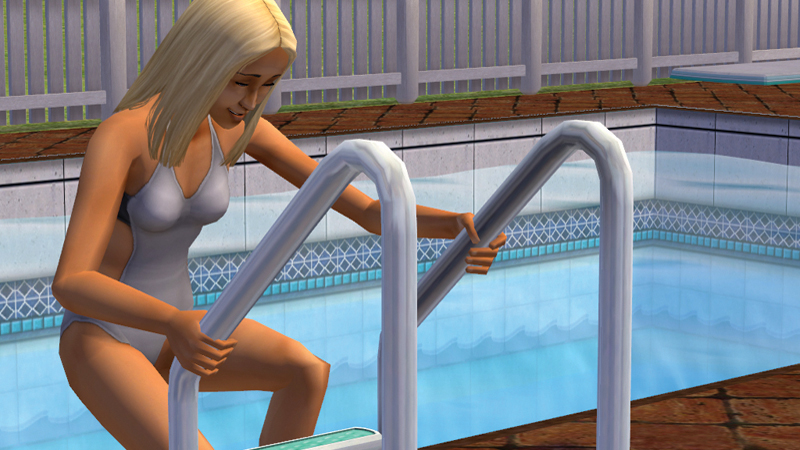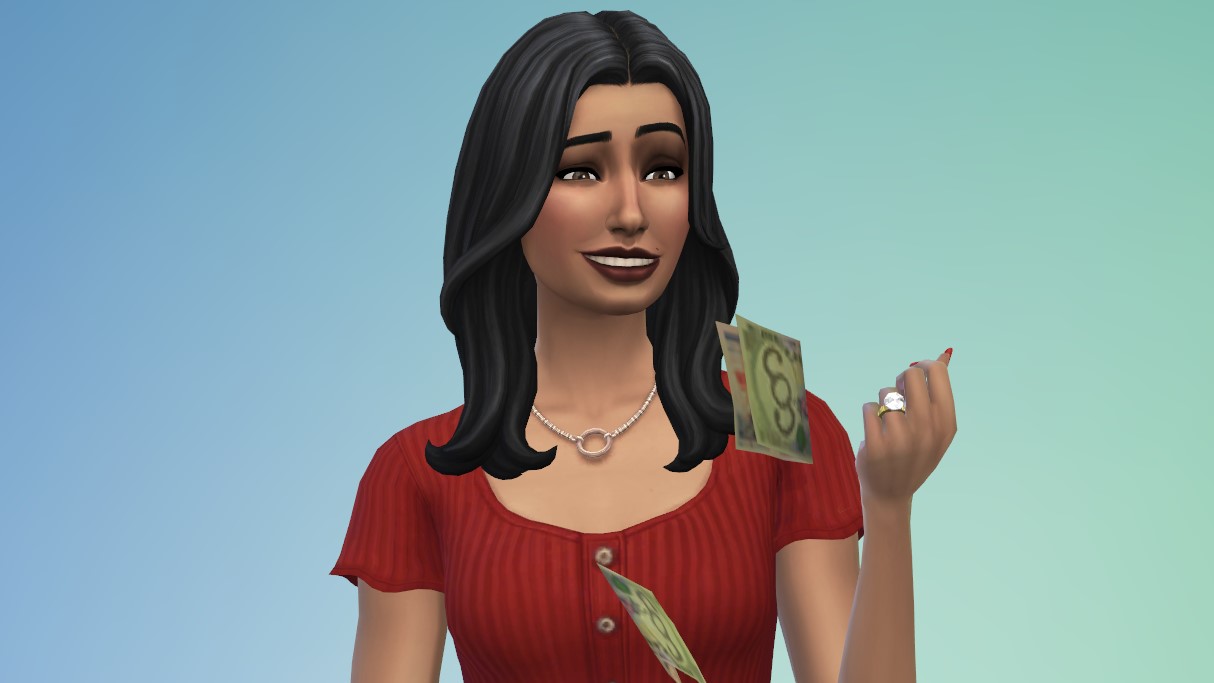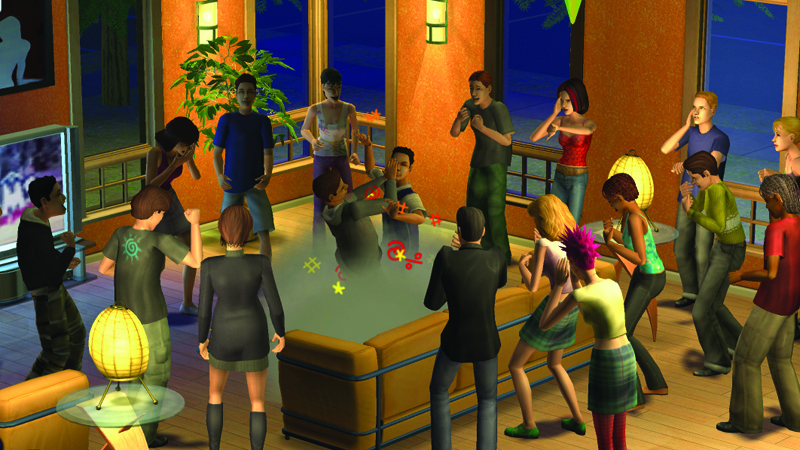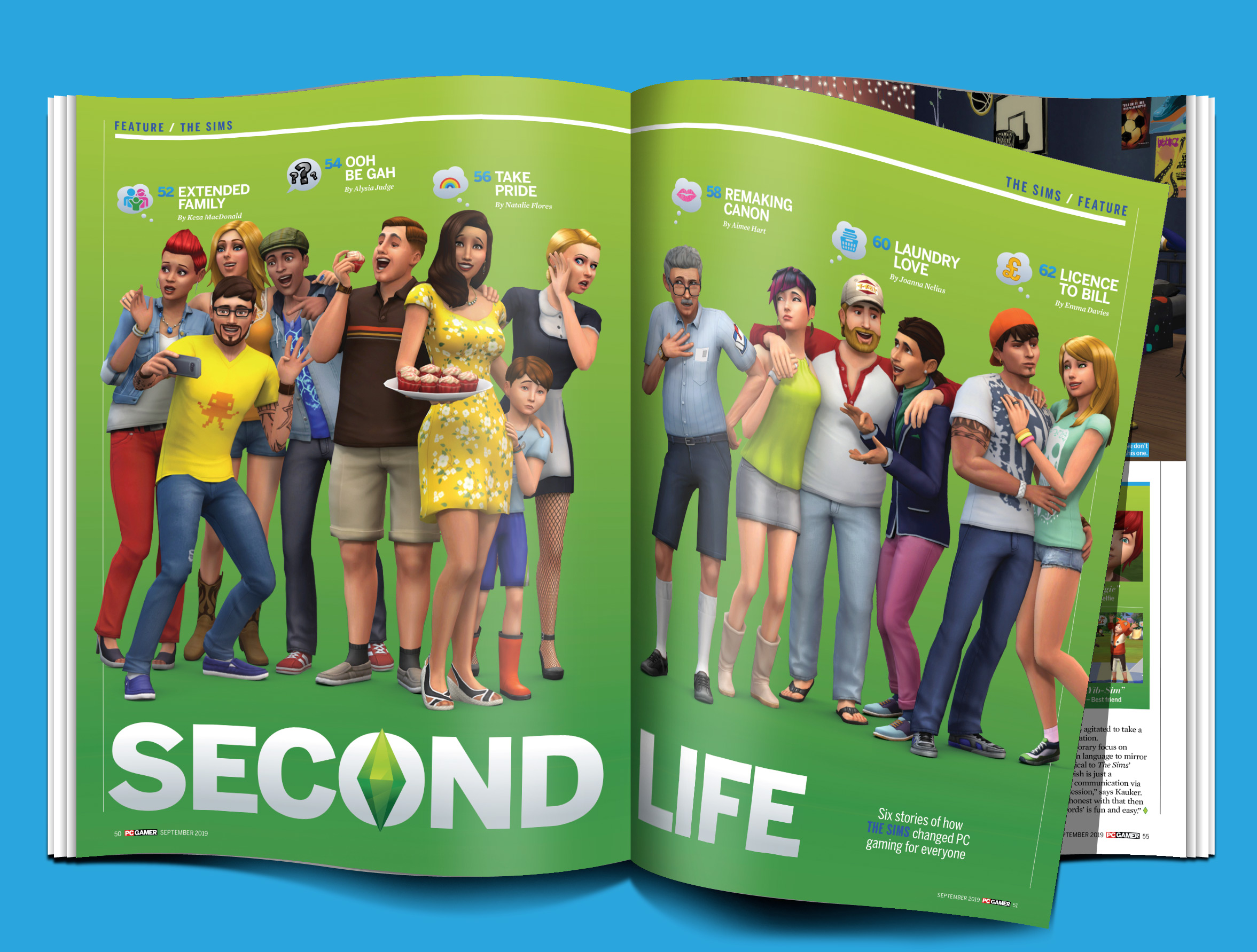The Sims 2 served as an extension of an already-embarrassing teen existence
The Sims can let you set up some strange social experiments.

There are two types of Sims players: the ones who create maniacal fantasies, in which hapless, interchangeable Sims are mere pawns in their sadistic games involving swimming pools and deleted ladders, and those who painstakingly recreate people and situations from real life and then run bizarre social experiments with them.

Sims 4 cheats: Life hacks
Sims 4 mods: Play your way
Sims 4 CC: Custom content
Sims 5: What we know
Sims 4 building tips: Renovate
Sims 4 challenges: New rules
As a teen playing The Sims 2, I was the latter.
I’d discovered The Sims on a friend’s mum’s PC a few years previously, while staying up late into the night on a sleepover, prodding little computer people who couldn’t ever seem to figure out how to use a dishwasher without help.
The Sims 2 had the character creator of my dreams. Instead of prefab faces with Lego haircuts, it had nose-length sliders and colour wheels and personality traits. My first few afternoons with the game were entirely spent within the Create-A-Sim menus, painstakingly recreating pretty much everyone I knew with unerring accuracy. (I still have a bit of a talent with character creators. Give me 20 minutes and I’ll do you one kickass Mii.)
Naturally, the next thing I did was take my tiny digital versions of family, friends, my then-boyfriend and his parents, and make them all live together in a massive house that I built with infinite-money cheats, to see what would happen.
(Actually that’s not true. The first thing I did was create a virtual David Boreanaz and Sarah Michelle Gellar and force them into a one-bedroom flat in the hopes of creating my own interactive Buffy the Vampire Slayer fan-fiction, but if I talk any more about that I will die of embarrassment.)

Generation game

We published a variety of stories about The Sims in issue 334 of PC Gamer magazine. For more beautifully detailed articles about the best stories in PC gaming, consider subscribing to the magazine's US or UK editions.
> Stuff, not stories, forms the real heart of The Sims series
> Laundry was the best and worst thing to happen to The Sims
> How to speak like the Sims
> How The Sims has spearheaded queer representation in gaming
> The Sims 2 served as an extension of an already-embarrassing teen existence
> Making your favourites kiss in The Sims
So, there I was, in the utility cupboard that for some reason housed our family PC (why were PCs always kept in cupboards in the ’90s/early ’00s?), watching a tiny on- screen version of my boyfriend’s dad pretend to paddle a bathtub like a canoe as the Sims-clone of my brother looked on in bemusement.
At this moment my actual, flesh-and-blood dad walked in, presumably to turn the central heating down, as all Scottish dads are constantly doing.
Keep up to date with the most important stories and the best deals, as picked by the PC Gamer team.
I turned around to see him staring at the little virtual versions of himself and all his loved ones, their smiling headshots and happiness meters lining the edges of the screen, an expression of horror spreading across his face.
“What... what are you doing?!” he asked. I had no answer. I just sort of sat there with my mouth open until he backed out of the room.
My poor, freaked-out dad. This must have been like his own personal episode of Black Mirror.
What could I have said? “Don’t worry, Dad, I’m only creating virtual robot-versions of you without consent and messing with them to see what will happen.”
It was never mentioned again, but he couldn’t quite look me in the eye for several days afterwards. He was right to be disturbed, thinking about it. There is something deeply megalomaniacal about The Sims. It feeds every human’s innate god complex, enables extreme control- freakery, and lets you manipulate tiny people for entertainment. This is one of the reasons for its extreme popularity, but another is that it’s also a powerful engine for wish-fulfilment. The difference between The Sims and other videogames is that the fantasies it offers are almost charmingly mundane: get your dream job, find someone to love, make a bit of money, own a nice house, start a family. The irony is that for the generation that were teens during peak Sims mania, half of these very ordinary aspirations now feel borderline unachievable in real life.
Teenage kicks
As an adolescent I spent a lot of time thinking about what my future might look like. Over the two years I spent playing The Sims 2 on and off, as well as building a lot of houses, downloading a couple of nudity mods and throwing a lot of awkward parties where Sims-versions of my friends unexpectedly got off with each other, I tried out different looks, careers and romances, friendships and personality traits.
Teens are so famously self-obsessed because those years are when you’re forming your identity. As well as offering a distraction from real life, The Sims lets you think about real life, if you want to. Within the confines of its little consumerist micro-world, it lets you try on different futures (or presents).
Under my careful guidance, my first Sims-me became a rich mad scientist in a castle-like house with six redheaded children. She died happy after an unnaturally long life prolonged by a Fountain of Youth in her untidy garden. Sadly I can’t exactly say I’m on the same path in real life.
For one thing, so far my children are blonde.

